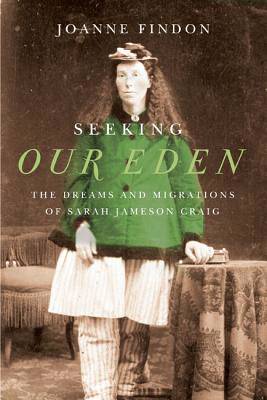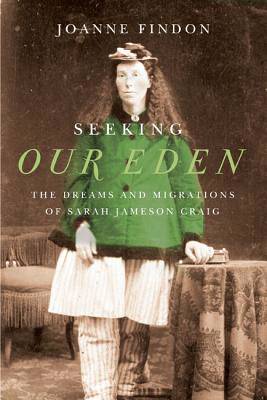
- Afhalen na 1 uur in een winkel met voorraad
- Gratis thuislevering in België vanaf € 30
- Ruim aanbod met 7 miljoen producten
- Afhalen na 1 uur in een winkel met voorraad
- Gratis thuislevering in België vanaf € 30
- Ruim aanbod met 7 miljoen producten
Zoeken
€ 55,45
+ 110 punten
Omschrijving
Although few nineteenth-century rural Canadian women could read and write well, Sarah Jameson Craig (1840-1919) was not only literate but eloquent. Unlike many women writers of her time, Craig lived at the bottom of the economic ladder. Nevertheless, she dared to dream the utopian dreams more commonly associated with educated women from the middle and upper classes. Craig vividly documented her attempt to run away at age fifteen, her plans to found a utopian colony based on alternative medicine and women's dress reform, and her lifelong crusade for women's equality. Quoting liberally from Sarah Craig's unpublished diaries and memoir, Seeking Our Eden sets Craig's life writing within the context of her early days in New Brunswick, her later migrations to New Jersey and then westward to Saskatchewan and British Columbia, and the American-based reform and utopian movements that stirred her imagination. Convinced that the tight corsets and long skirts demanded by conventional fashion undermined the fight for women's equality, Craig wore the reform dress - a short dress over trousers - despite society's disapproval, and rejected opiate- and alcohol-based medicines in favour of the water cure. Even today, when the way women dress remains an issue, and skepticism about conventional medicine still fuels alternative health movements, Sarah Craig's early feminist voice from the margins of Canada continues to be relevant and compelling.
Specificaties
Betrokkenen
- Auteur(s):
- Uitgeverij:
Inhoud
- Aantal bladzijden:
- 240
- Taal:
- Engels
Eigenschappen
- Productcode (EAN):
- 9780773544802
- Verschijningsdatum:
- 1/02/2015
- Uitvoering:
- Hardcover
- Formaat:
- Genaaid
- Afmetingen:
- 157 mm x 203 mm
- Gewicht:
- 399 g

Alleen bij Standaard Boekhandel
+ 110 punten op je klantenkaart van Standaard Boekhandel
Beoordelingen
We publiceren alleen reviews die voldoen aan de voorwaarden voor reviews. Bekijk onze voorwaarden voor reviews.











